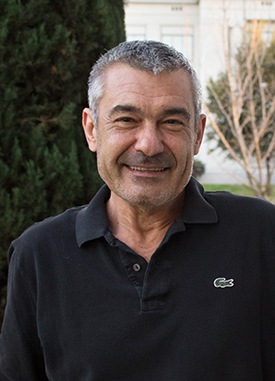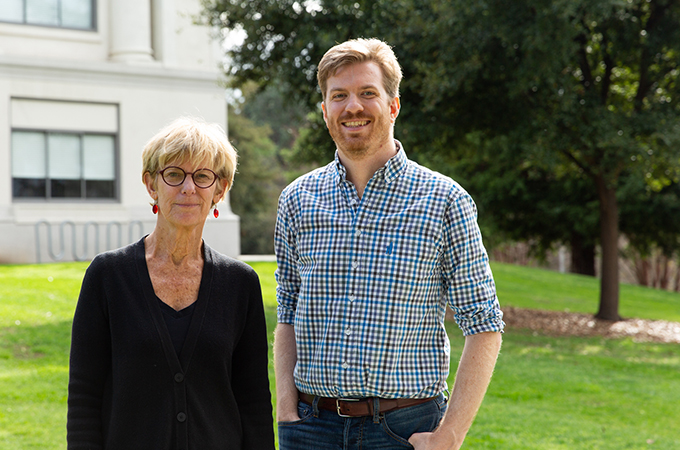Economics Professors Lorenzo Garbo, Dorene Isenberg, and Nicholas Reksten know well the challenges of teaching the principles of economics to first-year students.
“The textbooks tend to be giant and are presented as ‘one size fits all,’ so you have to hunt for what you need,” observes Isenberg. So, the trio decided to do something about it. They collaborated on a new textbook, Principles of Economics in a Nutshell, to provide students with a manageable curriculum that can be covered in one semester.

The book grew out of a series of lecture notes written by Garbo. “Our goal was to give instructors a basis for teaching students what they really need to know about economics while also allowing the instructors the flexibility to enrich their course according to their preferences,” he explains. “Our text allows economic principles to be taught from a variety of perspectives.”
The book’s length and price are points of pride as well. “The book is concise and affordable, which makes me very happy,” says Garbo.
The authors’ approach to the subject matter dovetails nicely with Redlands’ emphasis on the liberal arts. “The three of us view economics as a social science rather than a purely quantitative exercise, so we included an examination of the effects of economic theory on such issues as ecology and gender,” says Isenberg. Reksten adds, “We wanted to introduce economics as a living discipline that evolves over time and demonstrate how the field is shaped by historical context.”
Redlands students, who come from a variety of backgrounds, respond well to fresh approaches like this. “Our students are willing to take risks and explore new ways of learning,” says Garbo. “The idea of a liberal arts education is taken very seriously here. We work hard to train students in critical thinking and exercising an open mind. We want to prepare kids to be agile problem solvers.”
This is particularly true in the economics department, says Reksten. “We don’t want our students just memorizing models—we try to get them to relate their learning to real-world experiences and develop skills that employers want to see.” After all, Isenberg asserts, “If you’re going to find your way in this world, you need to be thinking and engaging.”
All three agree that thinking and engaging are in Redlands’ DNA. “There’s a great deal of intellectual support for everyone in the community and a heartfelt consideration for the work that your colleagues do,” says Garbo. “You feel you’re among peers who are all trying to do the best they can.” Professors are thoughtful and work lots of hours for their students, observes Isenberg.
“The community shares a good sense of values, and people follow through,” Reksten adds. “Redlands is a place where people think not only about the educational role our community plays, but also about our social and environmental impact. It pushes me to be a good and constructive contributor to the community, and I find that very fulfilling.”
Learn more about studying economics at the U of R College of Arts and Sciences or about the new textbook, Principles of Economics in a Nutshell.






